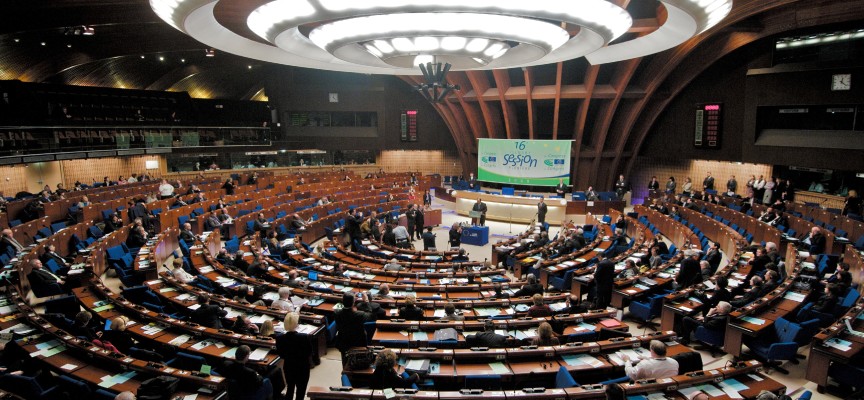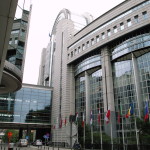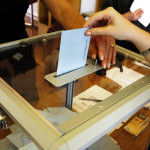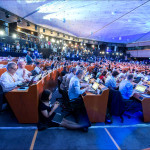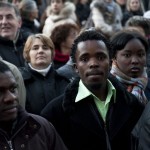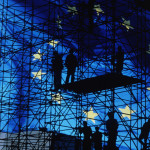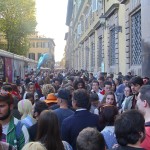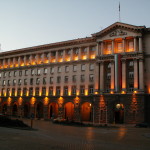Finally, the debate takes shape and the forthcoming elections are in the spotlight. It is proved by the many comments and echoes through the web and social networks, unfortunately not recognized and hosted by the traditional media. For example a completely new event for democracy in Europe, as the debates between the candidates running for the premiership to the European Commission are, raises interest and receives signs of approval. Positive echoes have had the two debates, like the one that took place on the evening of April 28 in Maastricht, in front of an audience of 700 young people, and which was repeated on the 29th from the Parliament in Brussels, broadcasted in live streaming, in connection with 15 European cities. They were followed and commented on by ordinary citizens who want to understand and take part, as evidenced by the more than 47 thousand comments posted on Twitter in reference to the Maastricht debate.
Also the churches in different European countries are showing their engagement in the debate. Thus, for example, the Church of Finland has invited eight major candidates in a debate on the Finns’ ‘Manifesto for the European elections’, a document expressing the desire of the Finnish Church to “further develop the open, transparent and regular dialogue with the EU” . “EU is also important for the Churches, as well as churches and other religious communities have an important role in today’s European societies”, reads the Manifesto. And it raises some issues: the future of the EU should be in the sense of a Europe of common values (“strengthening the value dimension within all political areas”); for the people (“economic growth and competitiveness are only means for promoting the common good”); welcoming (“humane and solidaric migration and asylum policies”); taking care of creation (“EU should show a leadership in fighting climate change and in adopting ambitious environmental policies”); protecting the freedom of religion (“promoting a positive freedom of religion – freedom of religion is not freedom from religion!”).
On the other hand, the Evangelical Church in Germany (EKD) has produced a sort of “manual” on the forthcoming elections with information about the Parliament and its functions, the electoral mechanisms, the role and tasks of the European Commission. And a strong appeal: “As evangelical Christians, we need to see ourselves as part of this Europe and actively participate in the debate. In any case, we should cast our vote in the elections of May 25, so that the right-wing populist and extremist parties would not benefit from a low turnout.” A dedicated website (www.ecumenicalvoices2014.eu) is available for churches with information on elections and with the presentation of the “central issues” for Christians in the electoral debate, and not only in it: social Europe, Europe of values, welcoming of migrants and refugees, human rights in and outside Europe, effective environmental policies , eradication of poverty in a globalized world. These are all signs testifying that there is still an interest in Europe, more and more, with always new proposals of future.
Finalmente il dibattito prende corpo e si accendono i riflettori sulle prossime elezioni. Lo dimostrano i commenti e gli echi, spesso non recepiti né ospitati dai mass media, ma reali, numerosi, diffusi attraverso la rete e i social network. A suscitare interesse e ricevere segni di approvazione sono ad esempio i dibattiti tra i candidati in corsa per il premierato alla Commissione europea, un evento completamente nuovo per la democrazia in Europa. Echi positivi hanno avuto i due appuntamenti, come quello del 28 aprile scorso da Maastricht, davanti a una platea di 700 giovani, che è stato ripetuto il 29 dalla sede del Parlamento a Bruxelles, trasmesso in streaming, in collegamento con 15 città europee. Seguiti e commentati da cittadini normali, che hanno voglia di capire e di partecipare, come dimostrano gli oltre 47 mila commenti che twitter ha accolto per il dibattito da Maastricht.
Anche le Chiese nei diversi Paesi europei stanno mostrando il loro coinvolgimento nel dibattito. Così, ad esempio, la Chiesa di Finlandia ha invitato gli otto principali candidati finlandesi a un confronto sul “Manifesto per le elezioni europee”, documento che esprime il desiderio della Chiesa finlandese di “sviluppare ulteriormente il dialogo aperto, trasparente e regolare con l’UE”. “L’UE è importante per le Chiese, così come le Chiese e le altre comunità religiose hanno un ruolo importante da svolgere oggi nelle società europee”, si legge nel Manifesto. E si avanzano alcune richieste: il futuro dell’UE deve essere nel senso di un’Europa di valori comuni (“rafforzare la dimensione dei valori in ogni ambito politico”), per i popoli (“la crescita economica e la concorrenza sono solo dei mezzi per promuovere il bene comune”), accogliente (“politiche migratorie solidali e umane”), che abbia cura del creato (“l’UE dovrebbe dimostrare una leadership nel combattere i cambiamenti climatici e adottare ambiziose politiche ambientali”), che tuteli la libertà di religione (promuovendo “una libertà di religione positiva: libertà di religione non è libertà dalla religione”).
La Chiesa evangelica tedesca (EKD) ha invece approntato una sorta di “manuale” sulle prossime elezioni del 25 maggio con informazioni sul Parlamento e le sue funzioni, sui meccanismi elettorali, sul ruolo e i compiti della Commissione europea. E un forte appello: “Come cristiani evangelici, dobbiamo comprenderci come parte di questa Europa e partecipare attivamente al dibattito. In ogni caso dovremmo partecipare al voto del 25 maggio, affinché i partiti estremisti e populisti di destra non traggano vantaggio dalla scarsa affluenza alle urne”. Un sito apposito, www.ecumenicalvoices2014.eu, è a disposizione delle Chiese per offrire informazioni sulle elezioni e sui “temi centrali” per i cristiani nel dibattito elettorale e non solo: Europa sociale, Europa dei valori, accoglienza ai migranti e ai rifugiati, diritti umani dentro e fuori l’Europa, politiche ambientali efficaci, eradicazione della povertà in un mondo globalizzato. Tutti incoraggianti segnali che l’Europa interessa ancora, sempre di più, con sempre nuove proposte di futuro.
Sarah Numico
Latest posts by Sarah Numico (see all)
- Neither lecturers nor teachers, but witnesses - 25 aprile 2015
- Holy Week with the persecuted - 30 marzo 2015
- They choose “to be in it” - 23 marzo 2015

